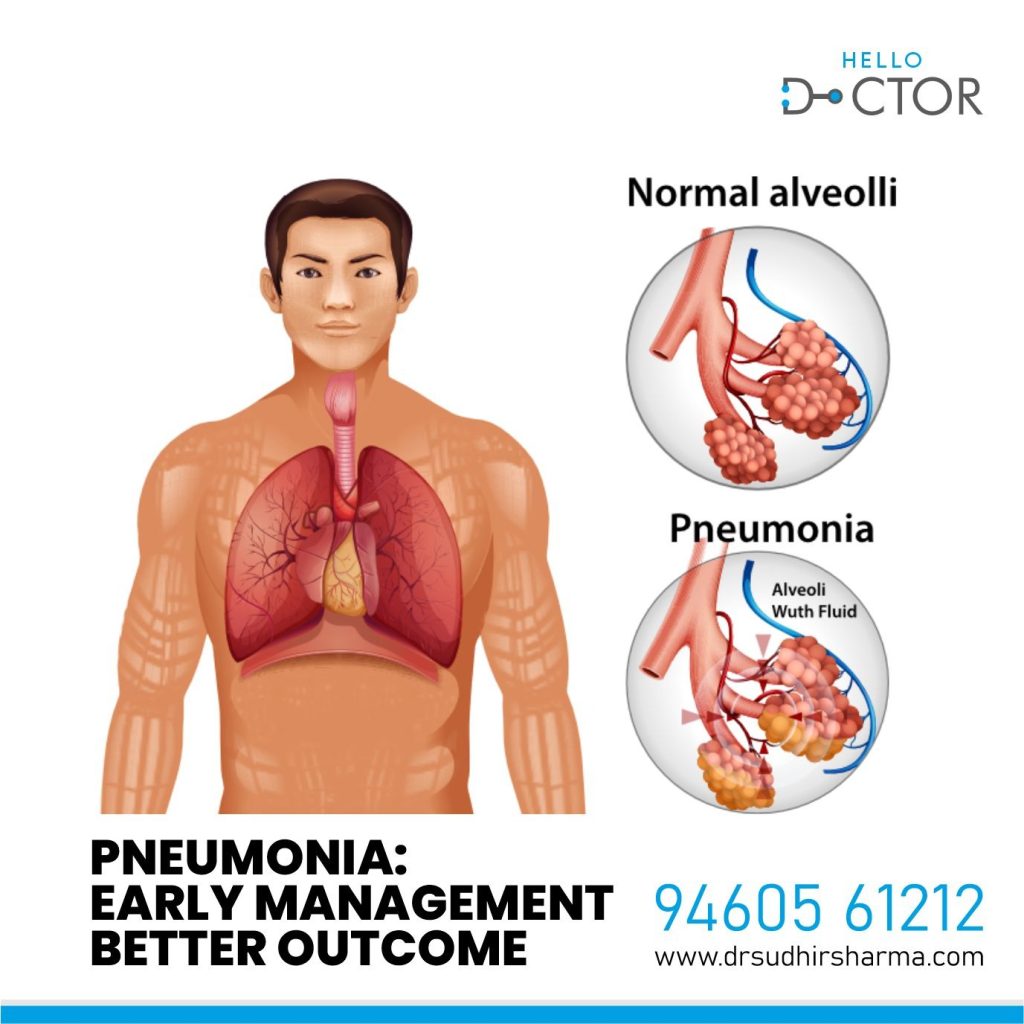Pneumonia: Early Detection Can Save Lives, Especially for Seniors!

Pneumonia is a serious lung infection that affects millions of people worldwide. Although it can impact individuals of all ages, it poses a particularly high risk to seniors due to their weakened immune systems. While pneumonia can lead to severe complications, early detection and timely management can significantly improve outcomes, especially for the elderly. In this blog, we’ll explore why pneumonia is so dangerous for seniors, the importance of early detection, and what steps you can take to protect yourself and your loved ones.
Understanding Pneumonia and Its Risks for Seniors
Pneumonia is an infection that inflames the air sacs in one or both lungs, which can fill with fluid or pus, causing symptoms like a persistent cough, chest pain, fever, and difficulty breathing. For seniors, these symptoms can escalate quickly and lead to life-threatening complications if left untreated. As people age, their immune systems weaken, making it harder to fight off infections, including pneumonia. Additionally, many elderly individuals already suffer from chronic conditions such as diabetes, heart disease, or respiratory issues, which further heightens the risk.
One of the most alarming statistics is that it is a leading cause of hospitalization and death among older adults. However, with early intervention, seniors can significantly reduce the risk of severe outcomes.
Why Early Detection Matters
Early detection of pneumonia can make a world of difference. Here’s why:
- Reduce Mortality Rates: For seniors, pneumonia can be a life-threatening illness, especially if not treated early. By identifying the infection in its initial stages, healthcare professionals can prescribe the appropriate medications and therapies to prevent it from worsening. Studies have shown that early intervention in elderly patients can significantly decrease the risk of death from pneumonia. When symptoms are recognized and addressed early, the chances of recovery improve drastically.
- Shorter Hospital Stays: Early treatment not only improves the chances of survival but also leads to shorter hospital stays. Seniors who receive prompt medical care can often recover at home with prescribed treatments such as antibiotics, fluids, and rest. A quick response reduces the need for prolonged hospitalization, which can be challenging and even dangerous for elderly patients. Hospital stays increase the risk of infections and complications, making it even more crucial to manage pneumonia before it progresses.
- Better Quality of Life: Early detection allows for quicker recovery, meaning seniors can return to their normal activities sooner. The faster pneumonia is managed, the less likely it is to cause long-term damage to the lungs or other organs, which could otherwise result in chronic health issues. A proactive approach helps protect the overall quality of life for older adults, allowing them to continue enjoying their daily routines.
Recognizing the Symptoms of Pneumonia in Seniors
The symptoms of pneumonia in seniors can be subtle or mistaken for other common respiratory issues, such as the flu or a common cold. It’s essential to be aware of the key signs of pneumonia, especially if you are caring for elderly loved ones.
Common symptoms include:
- Persistent, productive cough (often with mucus)
- Chest pain or discomfort, especially when breathing or coughing
- Difficulty breathing or shortness of breath
- Fever, chills, or sweating
- Fatigue or feeling unusually weak
- Confusion or changes in mental awareness (more common in seniors)
If you or your elderly loved one experience any of these symptoms, it’s important to seek medical attention immediately. Don’t wait for symptoms to worsen, as delaying treatment can lead to serious complications.
What You Can Do to Protect Your Elderly Loved Ones
Taking a proactive approach is essential when it comes to pneumonia prevention and management. Here’s how you can help:
- Stay Vigilant: Be extra attentive to the health of elderly family members, especially during cold and flu season when the risk of pneumonia is higher. Regular check-ups with a healthcare provider can help catch potential problems early.
- Vaccinations: Ensure seniors are up to date with vaccines, including the flu shot and pneumococcal vaccine, which can significantly reduce the risk of it.
- Good Hygiene: Encourage regular handwashing and sanitization to minimize exposure to germs and bacteria. Avoid crowded places during high-risk seasons to reduce the chances of infection.
- Seek Medical Help Early: If you notice any symptoms of pneumonia, don’t hesitate to seek medical care. Early intervention leads to better outcomes and faster recovery.
Conclusion
It is a serious health threat, particularly for the elderly, but it’s one that can be managed with the right approach. Early detection is crucial in reducing mortality rates, shortening hospital stays, and improving the overall quality of life for seniors. Recognizing symptoms and seeking prompt medical care can make all the difference.
If you or a loved one is experiencing symptoms of pneumonia or needs a consultation, don’t wait. Prioritize your health today!
Book Your Appointment Now: 9460561212 📞
Visit: https://drsudhirsharma.com
Address: 105, Main King’s Road, Next to Shyam Nagar Police Station, Nirman Nagar, Jaipur, Rajasthan 302019

